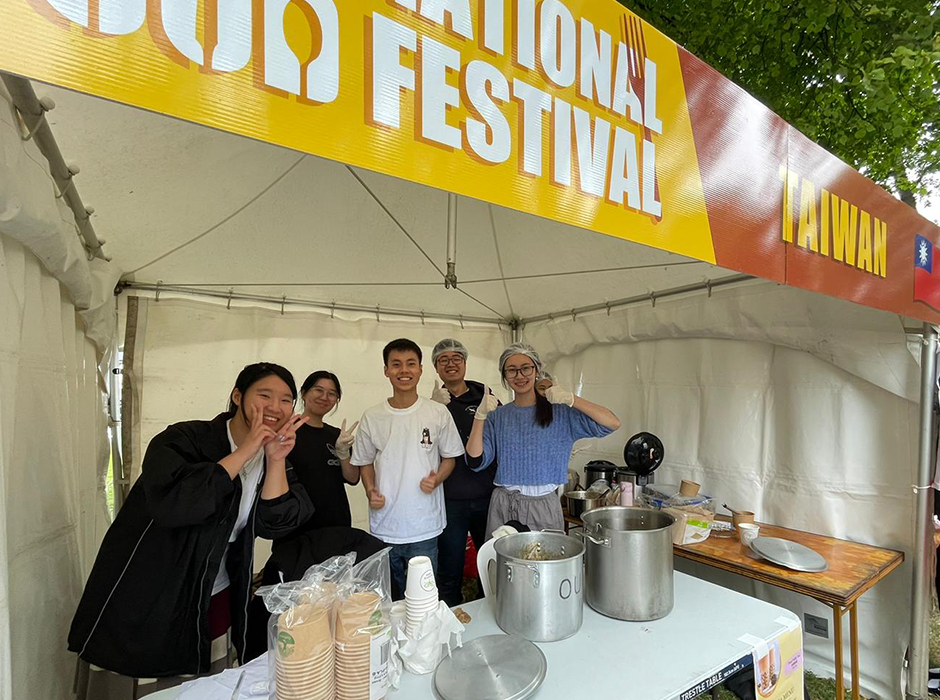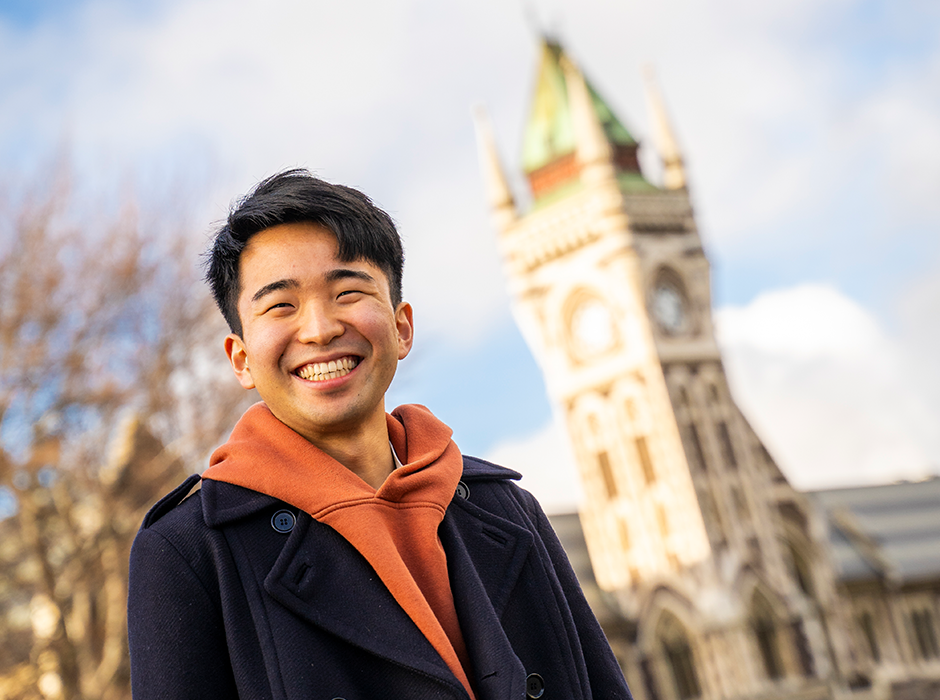
The Taiwan club’s stall at last year’s OUSA International Food Festival was a big hit with the crowds. This year’s festival will be even bigger than last year. It runs from 3pm-7pm at the Museum Reserve (in front of Tūhura Otago Museum) on Sunday 23 February.
Break out your comfy pants, the OUSA International Food Festival is back.
And this year promises to bring even more deliciousness, OUSA International Students’ Representative Ibuki Nishida says.
“There are going to be 15 stalls this year, which is the most we’ve had since Covid times.
“It was 11 last year and was still a resounding success, so I can’t wait to see what 15 clubs can do. We're making a comeback and we're very excited.”
Last year was Ibuki’s first time organising the food festival, which was a big hit with students and the wider community. It was also a bit of a learning curve.
“One of the main things I learned was to get more food. And to build trust, rapport, and community between the clubs to make an environment where we're all helping each other during cooking and on the day.”
Festival-goers can expect to find food from all around the world on Sunday, Ibuki says.
“The food is as diverse as the number of our cultural clubs – it helps that they’re the ones cooking. Just off the top of my head we have Japanese, Indian, African, Thai, Malaysian food, and lots more.”
The clubs are prepping for the event this week, with menus being finalised, health and safety briefings, and rosters being sorted.
“The last big hurdle is the actual cooking day and the serving, but I have confidence that our clubs will provide plenty of delicious food.”
The food festival provides international tauira with an opportunity to share their cultures with members of the Ōtepoti community, and also get in touch with their own culture, Ibuki says.
“I've heard many stories of cultural club members learning traditional family recipes at home in preparation for the food festival, which is incredibly sweet.”
Cooking for thousands of people can be high pressure but is also a really unique bonding experience.
“So many clubs come out the other side going ‘that was so stressful but also, that was fantastic’.
“For festival-goers, it's a wonderful opportunity to go on a trip around the world. It's much cheaper than booking flights, and a big bonus is that the proceeds go towards supporting our University clubs. I'd love to get us to the point where we can have two festivals in a year, since last year’s one was so incredibly popular.”
- The OUSA International Food Festival will run from 3pm-7pm at the Museum Reserve (in front of Tūhura Otago Museum) on Sunday 23 February.

Ibuki Nishida, who was also OUSA International Students’ Representative last year, understands what it’s like starting over in a new country.
International Students’ Representative
This is Ibuki’s second year in the role of OUSA International Students’ Representative.
“As part of the role, I sit on many committees as the students’ voice where decisions are made in and around the University that concern international students.
“I’m also the go-to person from the students' side, for any issues or concerns regarding international students.”
“I feel I can understand lots of the struggles of adapting to a new country because I’ve had to do that so many times before.”
Being on the exec is a way to give back to Otago and also help international students feel supported, he says.
“It's a role in which I feel I can give back something valuable to an environment that has given me so much during my time here. I truly love being a student here, and I want to work to make sure that everyone else feels the same.”
Ibuki – who is in his fourth year studying a BA in Politics, Philosophy and Economics – is originally from Tokyo, Japan and lived in the United States before moving to Aotearoa.
“I feel I can understand lots of the struggles of adapting to a new country because I’ve had to do that so many times before.”
Language is a challenge for many international students but there’s also adjusting to a different culture and to being so far away from family for a long period of time, he says.
“Homesickness is definitely a big one. It’s basically like all of the struggles that anyone starting university for the first time encounters but in a place you’re not familiar with and where you have fewer people to lean on in the beginning.”
The cultural clubs provide an immediate circle of friends, a sense of belonging to the wider community through events like the food festival, and even an opportunity to give back by becoming a club exec in their later University years, he says.
“People can always reach out to me or Otago International Students' Association (OISA), the umbrella club that looks after all the cultural clubs, to see where they fit in to our diverse clubs.”
Ibuki is also leading a campaign at OUSA to get closed captions on lectures and to have them all recorded, which will benefit international tauira.
His second major event will be the International Cultural Expo at the end of the year.
“The expo is a chance for the international clubs to basically showcase their culture and what we’ve gotten up to during the year.
“You get to experience so much in one go. You can see really cool demonstrations and people wearing traditional clothes, or serving traditional food, or playing traditional games. It’s a great way to encourage returning students to join a club the following year.”
– Kōrero by Internal Communications Adviser Laura Hewson
Keen on joining a club?
OUSA's list of affiliated clubs offers something for everyone – from anime to arm wrestling, K-Pop to cheerleading, as well as a world of cultural clubs.
Find out more